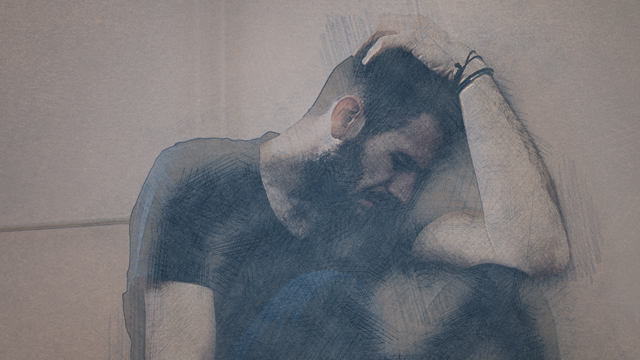When it comes to societal roles, men tend to picture themselves as majestic beasts. As beasts, they protect their offspring, work for their families, and have a strong sense of pride in their kingdom. But what happens when the beast is experiencing something he is unfamiliar with?
There seems to be a misconception about men and depression. From within or from the outside, it can be perceived as a feminine diagnosis. The truth is depression does not discriminate; all genders experience it. On the flip side, however, there are different signs and symptoms for men and women with depression. According to a study conducted by National Alliance of Mental Illness (NAMI), men who are depressed may appear to be angry or aggressive instead of sad. Their families, friends, and even their doctors may not always recognize the anger or aggressive behavior as symptoms of depression. Furthermore, men are less likely than women to recognize, talk about, and seek treatment for depression. Yet, it is proven that depression affects a larger number of men in today’s society than in past generations.
In addition to anger and irritability, men with depression may feel very tired and lose interest in work, family, or hobbies. Many have difficulty sleeping and enjoying daily activities.
Mental health symptoms can also manifest in physical issues, such as a racing heart, tightening in the chest, ongoing headaches, or digestive issues. All of these physical and emotional symptoms can be signs of a mental health problem, but many men are more likely to see their doctors about the physical issues and neglect the emotional symptoms.
Unfortunately, some men may turn to drugs, alcohol, and other reckless behaviors to try to cope with their emotional symptoms.
Common Symptoms of Depression in Men
Depression can affect men at any age. With the proper treatment, most men with depression can learn to manage it and gain back their interest in work, family, and hobbies. Let’s take a look at the common symptoms of depression in men:
• Anger, irritability, or aggressiveness
• Feeling anxious, restless, or on edge
• Loss of interest in work, family, or once-pleasurable activities
• Problems with sexual desire and performance
• Feeling sad, empty, flat, or hopeless
• Not being able to concentrate or remember details
• Feeling very tired, not being able to sleep, or sleeping too much
• Thoughts of suicide or suicide attempts
• Physical aches or pains, headaches, cramps, or digestive problems
• Inability to meet the responsibilities of work, caring for family, or other important activities
• Engaging in high-risk activities
• A need for alcohol or drugs
• Withdrawing from family and friends or becoming isolated
What Causes Depression?
Studies have shown that depression is one of the most common mental disorders in the United States. The causes vary, but in general, the research suggests that depression is caused by a combination of risk factors including:
Genetic Factors Men with a family history of depression may be more likely to develop it than those whose family members do not have the illness.
Environmental Stress Financial problems, loss of a loved one, a difficult relationship, major life changes, work problems, or any stressful situation may trigger depression in some men.
Illness Depression can occur with other serious medical illnesses, such as diabetes, cancer, heart disease, or Parkinson’s disease. Depression can make these conditions worse and vice versa. Sometimes, medications taken for these illnesses may cause side effects that trigger or worsen depression.
Treating Depression in Men
Men often avoid addressing their feelings and, in many cases, friends and family members are the first to recognize their loved one is depressed.
It’s important for friends and family to support their loved one and encourage him to visit a doctor or mental health professional for an evaluation. A health professional can conduct an exam to rule out other conditions that may have symptoms similar to those of depression. He or she also can tell if certain medications are affecting the depression.
The doctor needs to get a complete history of symptoms, such as when they started, how long they have lasted, how bad they are, whether they have occurred before, and if so, how the symptoms were treated. It is important that the man seeking help be open and honest about any efforts at self-medication with alcohol, non-prescribed drugs, gambling, or high-risk activities. A complete history should include information about a family history of depression or other mental disorders.
As a man, you will be no less of a beast if you have been diagnosed with depression. If you recognize the symptoms, seek assistance. You can learn to manage your depression in a healthy way that keeps you close to family members, friends, and work associates.




